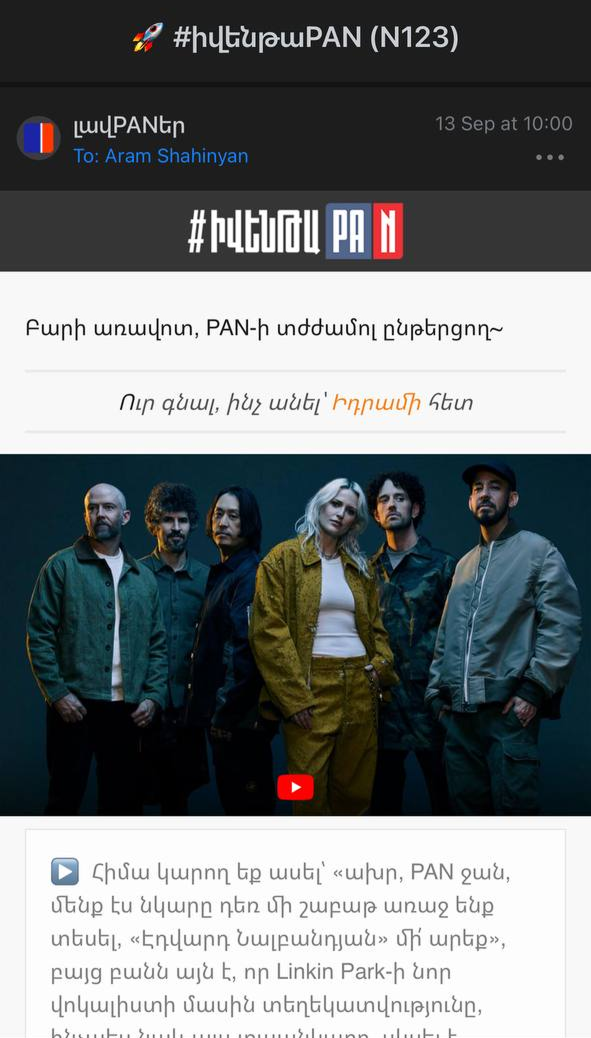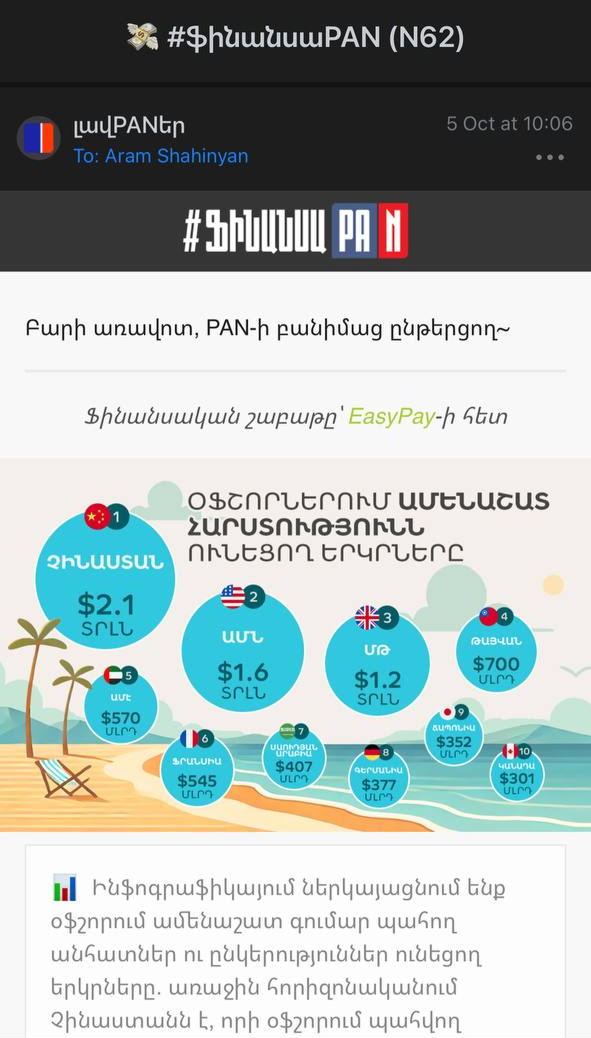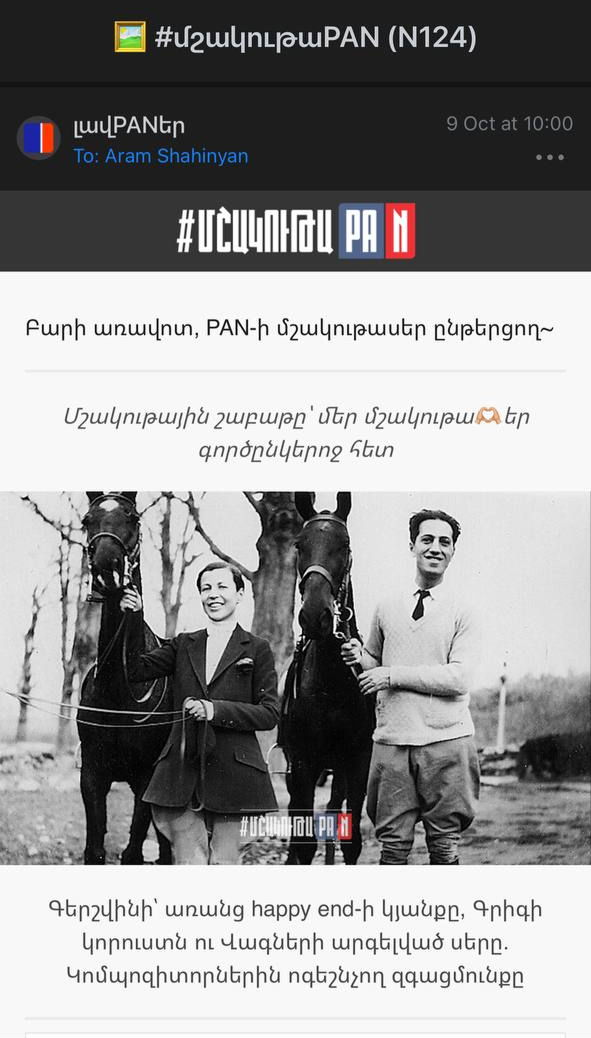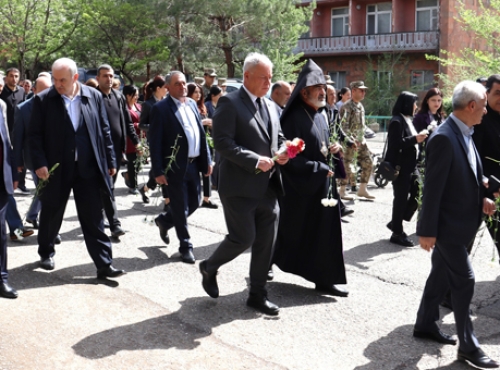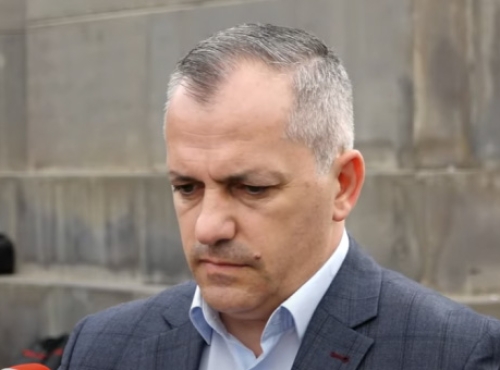Despite the confidentiality of the last negotiations of the co-chairmen taken place in early March in Washington, there are some people in Baku who assure that they are informed about the content of the talks. Particularly, political scientist Jumshud Nuriyev said that the mediators were considering a variant according to which Azerbaijan would be suggested a scheme used in case with Georgia. “According to my information, a federative structure of Azerbaijan is planed, with providing Nagorno Karabakh with a status of an autonomous state and with creation of buffer zone between Karabakh and Armenia – the autonomous state of “Kurdistan” on the territory of Kelbajar, Lachin, Kubatli and Zangelan regions”. As if in exchange the Karabakh people will be suggested to move from the regions of the changed Karabakh.
Such a variant can not be valid. It is difficult to believe that a political scientist can be informed about the plans of the mediators. Even Heydar Aliyev confessed he didn’t know anything about the prepared proposals. Azerbaijani Foreign Minister Vilayat Guliyev also knows nothing. The only thing that the Foreign Minister of Armenia Vartan Oskanyan knows is that the new variant of proposals will be based on the previous principles. Besides, the statement about formation of Kurdish state near NKR is very doubtful, as it is known that as a result of the policy of the Azerbaijani authorities, the Kurds populating these regions were assimilated forcedly. Though the leaders of the Kurdish community of the USA continue to declare that the Kurdish state will include the Southern regions of Azerbaijan, it would be naive to think that such a brave idea could be approved by the states-members of the OSCE Minsk group. In case with the Iraqi Kurdistan, the world community did everything to prevent the declaration of sovereignty. Besides, variants suggesting giving Karabakh of a status of an autonomous state within Azerbaijan have always been refused both by Stepanakert and Yerevan. We shall note that the recent statements of representatives of countries-co-chairs of the Minsk group testify that the plans of mediators are being based on the principles approved by Kocharian and Aliyev in Key West.
During the visit of Vladimir Putin to Paris in February, Jacques Chirac said France and Russia had agreed on the inadmissibility of speaking about the sovereignty of Azerbaijan over Karabakh before the end of negotiations. According to him, if in case with Chechnya “the problem should be solved on the base of the principle of territorial integrity,” the Karabakh settlement should be based on “mutual agreement of Armenia and Azerbaijan”. This in fact means that Moscow and Paris do not rule out the possibility of an independent status for Nagorno Karabakh, or its reunification with Armenia. We shall remind that the American co-chairman Rudolf Perina said almost the same: “The world community is not ready to recognize the Southern Osetia, Abkhazia or Prednestrovia as independent states. The case of Nagorno Karanbakh is different.” It is evident that while developing the proposals about the status of Karabakh, the Minsk group c-chairmen take into account the self-determination right of the people.
The former Baku diplomats once involved in the Karabakh talks also know this. Ex-Adviser to the Azerbaijani President Vafa Guluzade said one of these days that “the OSCE Minsk group and the European Union try to convince Azerbaijan to make concessions in exchange for peace.” “Some of the political circles of Baku are ready to make those concessions,” Guluzade says. According to him, despite the support shown by Baku to the anti-Iraqi coalition, “Washington prefers to have good relationship with the Armenian lobby, instead of supporting the just demands of Azerbaijan.” (By saying just demands he understands the sovereignty of Azerbaijan over the Nagorno Karabakh and Lachin). “We can not count on Washington to convince Yerevan to recognize the territorial integrity of Azerbaijan”, Guluzade says and urges “not to ignore the fact that the main interest of the United States in the region is in solving all the disputes peacefully, even if it contradicts the interests of its ally in the Caucasus – Azerbaijan”.
So, it is evident that there are no grounds to think that the new proposals of the co-chairmen will differ from those approved by the leaders of Armenia and Nagorno Karabakh two years ago. And there are no grounds for forecasting a creation of a Kurdish autonomy on the territory controlled by the Karabakh people.










